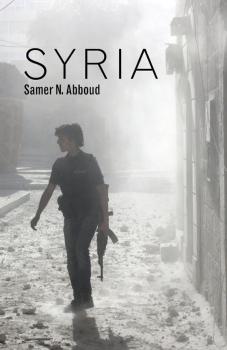In New Book, Samer N. Abboud Analyzes the Global Impact of the Syrian War

With the world watching the conflict in Syria, Samer N. Abboud, associate professor of history and international studies at Arcadia University, explains in his new book how the war has unfolded, and what can be done.
Released Oct. 26, Syria, has been acclaimed by scholars for deconstructing the complexities of the Syrian war into an understandable issue. Through an examination of the history of Syria, Abboud looks at the conflict’s cause and motivations behind it, in order to explore what the ultimate outcomes might be.
“The goal of this book is to serve as an introduction to readers about the Syrian conflict,” Abboud said. “It’s not trying to describe what’s happened in the conflict, but to analyze them through some important questions… such as why are we in the situation we are today? Why did Syria end up in this very militarized conflict, where there’s both a military stalemate and a political stalemate? Why is the country fragmenting?”
Abboud believes a multi-staged resolution needs to be addressed in order to first de-escalate the violence and begin delivering humanitarian aid throughout the region.
“One of the largest parts is that you have this catastrophic humanitarian issue,” Abboud said. “You have the worst humanitarian crisis of the 21st century. Half the population is either dead or displaced… What is needed now is humanitarian relief. The problem is, with the violence, getting goods and humanitarian convoys around is very difficult. So I think that at best we can hope for a solution that de-escalates the conflict and increases people’s access to humanitarian resources.”
An expert on the Syrian conflict, Abboud has contributed a number of articles on Syria and the Middle East and is sought after by international publications such as Al Jazeera and BBC for commentary. His research in the past decade has explored a range of questions in the fields of International Political Economy and International Relations, in the context of the Arab World.
Abboud spent over a year researching and writing Syria, pulling information directly from activist and rebel social media to analyze the driving forces of the war. Although this is his second book, Abboud said this was a first using social media as a tool to research.
“Strangely enough, a lot of the rebel groups will publish things about territories they control, about agreements they have with other rebel groups, so social media was [key],” Abboud said.
Abboud has taught at Arcadia University since 2010. He earned a bachelor’s degree and master’s degree in Political Science from Carleton University in Canada, and a doctorate in Arab and Islamic Studies from the University of Exeter in England.


